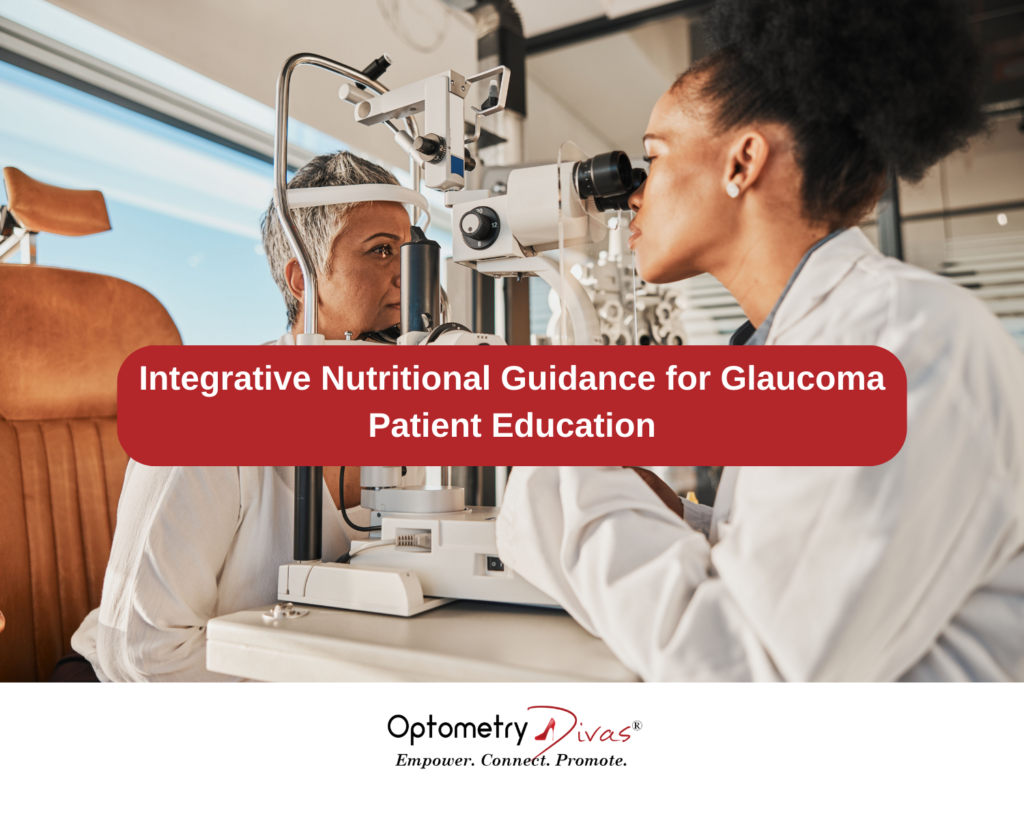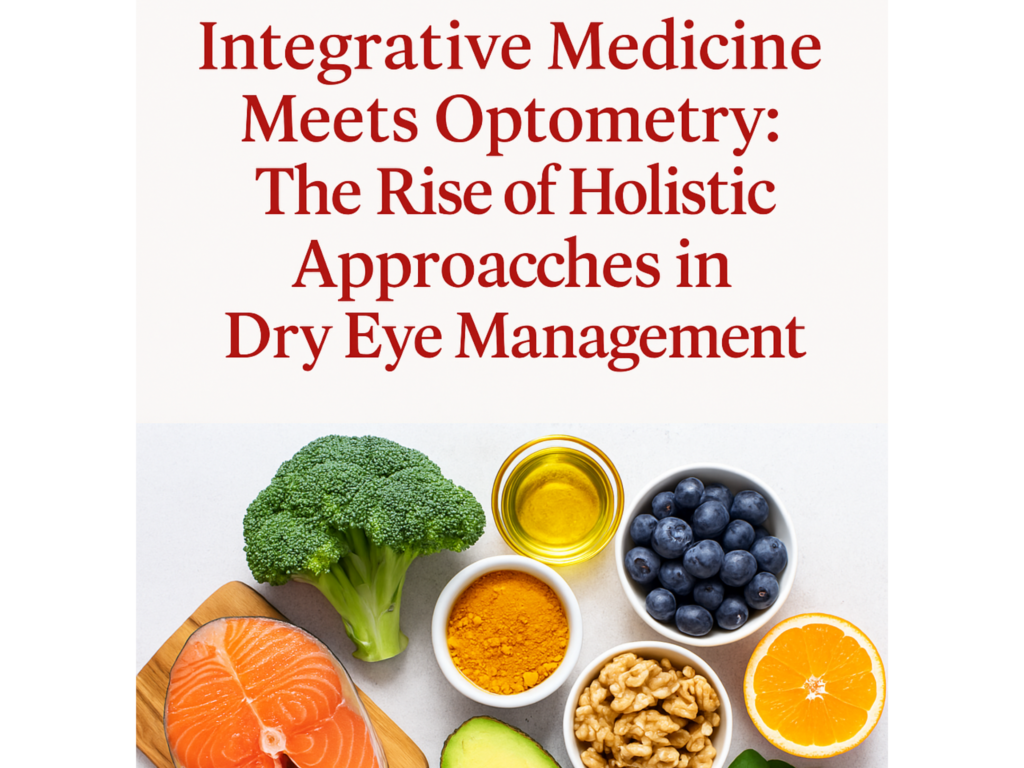Embracing Holistic Health: Integrative Eye Care, Nutrition, and Wellness Month

June is Integrative Eye Care, Nutrition, and Wellness Month. This is a wonderful opportunity to explore how a holistic approach to eye care, combined with proper nutrition and overall wellness, can lead to optimal eye health and overall well-being for us women optometrists, patients, and others.
Understanding Integrative Eye Care
Integrative eye care combines traditional optometry with complementary therapies to address the health of the whole person, not just the eyes. This approach acknowledges the interconnectedness of body systems and emphasizes the role of nutrition, lifestyle, and mental well-being in maintaining healthy vision.
Inspirational Stories of Holistic Health
Dr. Richard Hansler: Dr. Richard Hansler, a lighting expert and researcher, explored how blue light affects sleep and eye health. After discovering the negative impact of artificial lighting, he developed blue light-blocking technology and advocated for lifestyle changes to protect eye health. His holistic approach emphasizes the importance of environment and lifestyle in maintaining eye health.
Patient Story – Sarah’s Journey: Sarah, a patient in her 50s, struggled with chronic dry eye and was dissatisfied with conventional treatments. Her optometrist introduced her to an integrative approach, including dietary changes, hydration, and stress management techniques like yoga and meditation. Over time, Sarah experienced significant improvement in her symptoms, demonstrating the power of holistic eye care.
Psychological Insights into Integrative Health
Mind-Body Connection: The mind-body connection is fundamental to integrative health. According to Dr. Herbert Benson’s research on the relaxation response, stress reduction techniques such as meditation, deep breathing, and mindfulness can significantly improve overall health, including eye health. Reducing stress can lower intraocular pressure, a risk factor for glaucoma, and alleviate symptoms of dry eye.
Behavioral Change: Changing health behaviors is crucial for integrative eye care. The Transtheoretical Model of Behavior Change, developed by Prochaska and DiClemente, emphasizes the stages of change: precontemplation, contemplation, preparation, action, and maintenance. Understanding these stages can help optometrists support patients in adopting healthier lifestyles.
The Role of Nutrition in Eye Health
Key Nutrients for Vision:
- Vitamin A: Essential for maintaining the cornea and preventing night blindness. Foods rich in Vitamin A include carrots, sweet potatoes, and leafy greens.
- Omega-3 Fatty Acids: Found in fish like salmon and flaxseeds, omega-3s reduce inflammation and support retinal health, beneficial for dry eye syndrome.
- Lutein and Zeaxanthin: Antioxidants that protect against macular degeneration and cataracts. These nutrients are abundant in kale, spinach, and other green vegetables.
- Vitamin C and E: Powerful antioxidants that protect against cataract formation. Citrus fruits, almonds, and sunflower seeds are excellent sources.
Practical Strategies for Integrative Eye Care
- Holistic Eye Exams:
- Incorporate discussions about diet, lifestyle, and stress levels during eye exams.
- Offer personalized recommendations based on patients’ overall health and wellness.
- Nutrition Counseling:
- Educate patients on the importance of a balanced diet rich in eye-healthy nutrients.
- Provide resources, such as recipes or meal plans, to help patients incorporate these nutrients into their diets.
- Stress Management:
- Encourage patients to practice stress-reducing activities such as yoga, meditation, and regular physical exercise.
- Highlight the benefits of adequate sleep and proper screen time management for eye health.
- Community Engagement:
- Host workshops or webinars on integrative eye care and wellness.
- Collaborate with local health and wellness practitioners to provide a comprehensive approach to patient care.
- Preventive Care:
- Advocate for regular eye exams and early detection of eye conditions.
- Emphasize the importance of wearing UV-protective sunglasses and managing chronic conditions like diabetes and hypertension that affect eye health.
Conclusion
Integrative Eye Care, Nutrition, and Wellness Month is a time to embrace a holistic approach to eye health. For women optometrists, this means not only treating eye conditions but also promoting overall wellness through nutrition, lifestyle changes, and stress management. By understanding and addressing the interconnectedness of our body systems, we can help our patients achieve optimal eye health and overall well-being.
This month, let’s commit to educating our patients about the benefits of integrative eye care. Let’s inspire them with stories of transformation and provide them with the tools they need to see the world more clearly and live healthier lives.
Together, we can make a profound impact on our patients’ vision and health, ensuring they enjoy the beauty of life through healthy eyes and a well-nourished body. Happy Integrative Eye Care, Nutrition, and Wellness Month!





